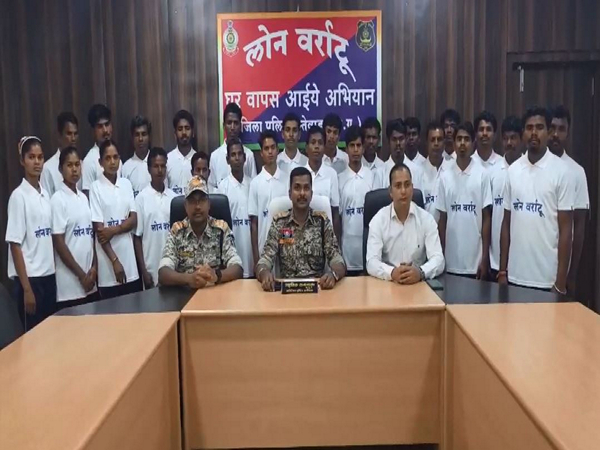The Day of the Seafarer by Capt Bjorn Hojgaard, CEO, Anglo-Eastern Univan Group
Jun 23, 2023

PNN
Kolkata (West Bengal) [India], June 23: The Day of the Seafarer celebrated on 25 June every year is an important occasion to recognize and appreciate the indispensable contributions of seafarers worldwide. These courageous individuals play a vital role in global trade, ensuring the smooth operation of ships and facilitating international commerce. However, as the shipping industry undergoes a green energy transition, the ship manning sector faces new challenges and an urgent need to update international maritime laws and regulations.
This article highlights the potential of Indian officers and ratings and emphasizes the critical importance of training and upskilling in the context of the green energy transition.
The ship manning sector, responsible for providing competent officers and skilled ratings to the maritime industry, faces significant challenges as the sector shifts towards sustainable practices. One of the primary challenges is the need for training and upskilling to adapt to emerging technologies and green energy solutions. The adoption of alternative fuels, such as liquefied natural gas (LNG) and hydrogen-based e-fuels, and the integration of energy-efficient technologies demand a skilled workforce capable of operating and maintaining these advanced systems. Moreover, the green energy transition requires seafarers to possess a deep understanding of environmental regulations and compliance measures. The implementation of stricter emissions standards and the need to reduce carbon footprint necessitate the training of seafarers in sustainable practices and technologies. Ensuring that seafarers are well-equipped to navigate the complexities of the green energy transition is essential for the successful and sustainable operation of ships.
To address the challenges of the green energy transition, it is imperative to review and reform international maritime laws and regulations. Updating these policies will enable the ship manning sector to adapt to the evolving needs of the industry and support the successful implementation of sustainable practices. Firstly, there is a need for specialized training programs that equip seafarers with the knowledge and skills required for operating and maintaining vessels powered by alternative fuels and energy-efficient technologies. Additionally, incorporating environmental awareness and sustainability principles into existing certification processes can help foster a culture of eco-consciousness among seafarers. This can be achieved by integrating modules on environmental protection, energy efficiency, and emission reduction strategies into the training curriculum. By doing so, seafarers will be better prepared to navigate the environmental challenges associated with the green energy transition. India, with its vast pool of skilled officers and ratings, holds significant potential to contribute to the green energy transition in the ship manning sector.
Indian seafarers are renowned for their competence, adaptability, and technical expertise. Leveraging this potential, India can position itself as a key player in the global maritime industry's sustainable future. To fully harness India's potential, the government and maritime authorities must collaborate with industry stakeholders to address the training and upskilling needs specific to the green energy transition. Investing in specialized training programs and establishing partnerships with research institutions and technology providers will enable Indian seafarers to stay at the forefront of sustainable shipping practices. By fostering a supportive environment for innovation and learning, India can supply a highly skilled workforce capable of embracing and advancing green technologies in the maritime sector.
As we celebrate the Day of the Seafarer, it is crucial to acknowledge the challenges faced by the ship manning sector in the context of the green energy transition. Reforms in international maritime laws and regulations, with a focus on training and upskilling, are vital to ensure a smooth and successful transition to sustainable shipping practices. India's talented officers and ratings hold immense potential in driving this transition forward. By providing them with the necessary support and opportunities for growth, we can create a more environmentally friendly and prosperous maritime industry for the benefit of all.
(Disclaimer: The above press release has been provided by PNN. ANI will not be responsible in any way for the content of the same)




















